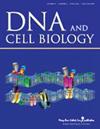Maslinic Acid Inhibits Myocardial Ischemia-Reperfusion Injury-Induced Apoptosis and Necroptosis via Promoting Autophagic Flux.
IF 2.6
4区 生物学
Q3 BIOCHEMISTRY & MOLECULAR BIOLOGY
引用次数: 4
Abstract
Apoptosis, necroptosis, and autophagy are the major programmed cell death in myocardial ischemia-reperfusion injury (MIRI). Maslinic acid (MA) has been found to regulate pathophysiological processes that mediate programmed cell death in MIRI, such as inflammation and oxidative stress. However, its effects on MIRI remain unclear. This study intends to explore the role of MA in MIRI. In vitro, MA had no obvious cytotoxic effects on H9C2 cells, and significantly improved the impaired cell viability caused by hypoxia reoxygenation (HR). In vivo, MA significantly alleviated ischemia reperfusion (IR)-induced left ventricular myocardial tissue injury, downregulated creatine kinase-myocardial band (CK-MB), and lactate dehydrogenase (LDH) levels in serum as well as reducing infarct size. Moreover, MA inhibited HR-induced mitochondrial apoptosis and necroptosis in vitro and in vivo. Of interest, MA interacts with lysosome-associated membrane protein 2 (LAMP2). MA protected LAMP2 from IR and promoting autophagic flux to inhibit apoptosis and necroptosis, whereas these effects were reversed by co-treatment with lysosomal inhibitor BarfA1. In conclusion, MA can inhibit MIRI-induced apoptosis and necroptosis by promoting autophagic flux. These results support that MA is a potential agent to ameliorate MIRI.Maslinic Acid通过促进自噬流量抑制心肌缺血再灌注损伤诱导的细胞凋亡和坏死。
细胞凋亡、坏死和自噬是心肌缺血再灌注损伤(MIRI)中主要的程序性细胞死亡。Maslinic acid(MA)已被发现调节介导MIRI中程序性细胞死亡的病理生理过程,如炎症和氧化应激。然而,它对MIRI的影响仍不清楚。本研究旨在探讨MA在MIRI中的作用。在体外,MA对H9C2细胞没有明显的细胞毒性作用,并显著改善了缺氧-复氧(HR)引起的细胞活力受损。在体内,MA显著减轻了缺血再灌注(IR)诱导的左心室心肌组织损伤,下调了血清中肌酸激酶心肌带(CK-MB)和乳酸脱氢酶(LDH)水平,并缩小了梗死面积。此外,MA在体外和体内抑制HR诱导的线粒体凋亡和坏死。令人感兴趣的是,MA与溶酶体相关膜蛋白2(LAMP2)相互作用。MA保护LAMP2免受IR的影响,并促进自噬流量以抑制细胞凋亡和坏死,而与溶酶体抑制剂BarfA1联合治疗可逆转这些作用。总之,MA可以通过促进自噬流量来抑制MIRI诱导的细胞凋亡和坏死。这些结果支持MA是改善MIRI的潜在制剂。
本文章由计算机程序翻译,如有差异,请以英文原文为准。
求助全文
约1分钟内获得全文
求助全文
来源期刊

DNA and cell biology
生物-生化与分子生物学
CiteScore
6.60
自引率
0.00%
发文量
93
审稿时长
1.5 months
期刊介绍:
DNA and Cell Biology delivers authoritative, peer-reviewed research on all aspects of molecular and cellular biology, with a unique focus on combining mechanistic and clinical studies to drive the field forward.
DNA and Cell Biology coverage includes:
Gene Structure, Function, and Regulation
Gene regulation
Molecular mechanisms of cell activation
Mechanisms of transcriptional, translational, or epigenetic control of gene expression
Molecular Medicine
Molecular pathogenesis
Genetic approaches to cancer and autoimmune diseases
Translational studies in cell and molecular biology
Cellular Organelles
Autophagy
Apoptosis
P bodies
Peroxisosomes
Protein Biosynthesis and Degradation
Regulation of protein synthesis
Post-translational modifications
Control of degradation
Cell-Autonomous Inflammation and Host Cell Response to Infection
Responses to cytokines and other physiological mediators
Evasive pathways of pathogens.
 求助内容:
求助内容: 应助结果提醒方式:
应助结果提醒方式:


